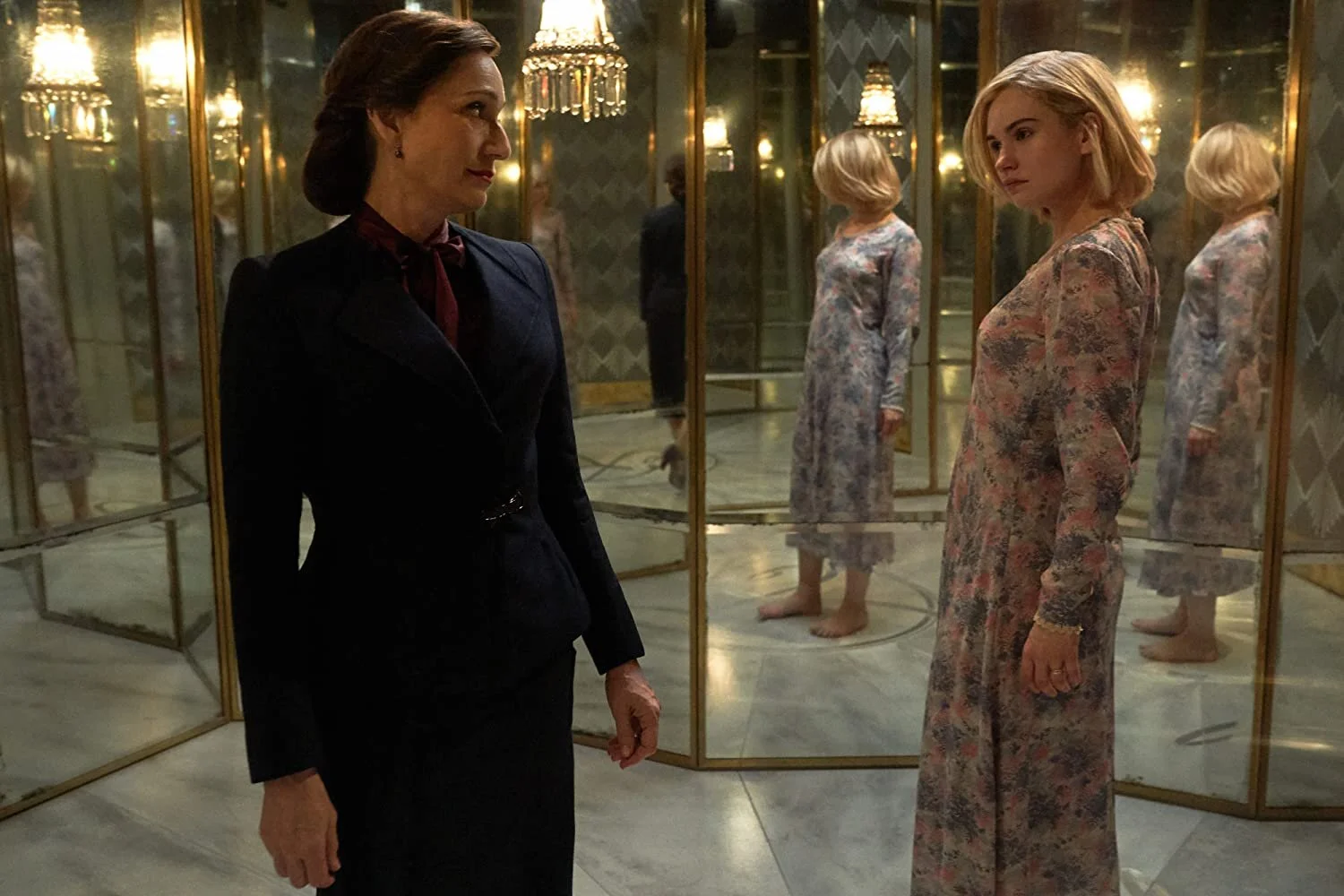Rebecca (dir. Ben Wheatley, 2020) - Review
‘The story is old-fashioned,’ brooded Alfred Hitchcock of his Rebecca, the 1940 Best Picture Oscar-winner. ‘There was a whole school of feminine literature at the period, and though I’m not against it, the fact is that the story is lacking in humour.’
Good news, then, for the laughable Netflix remake, which can finally offer something that its predecessor did not. The casting of Lily James (Young Donna from Mamma Mia 2) and Armie Hammer (the Lone Ranger from Gore Verbinski’s box-office bomb) in the iconic roles of Joan Fontaine and Laurence Olivier sends Rebecca 2.0 skidding into the realm of comedy. Truly a film for 2020: this mismanaged melodrama spends too long stuck in a house and achieving very little.
Francois Truffaut noted of the original that “even today, 26 years after it was made, (Hitchcock’s) Rebecca is still very modern, very solid… the novel itself wasn’t a thriller, there was no suspense. It was simply a psychological story, into which (Hitchcock) deliberately introduced the element of suspense around the conflict of personalities.” The Netflix version fails to match the original’s suspense, let alone improve upon it, managing to be more stale than its 80 year old forebear.
Lily James copy-pastes much of her performance from Disney’s Cinderella (2015), where she honed her portrayals of crying and being poor. Unfortunately, the role of the second Mrs de Winter requires a bit more intrigue; in the tradition of other former Disney stars, James tries to escape her squeaky-clean image within the bounds of a 12A rating. Alas, all the toned expanses of flesh displayed in the film can’t compensate for the insipid passivity of the two leading performances. James expertly portrays the birdlike, stammering naiveté fetishised by Mr de Winter in her “funny, young, lost look”, but under Ben Wheatley’s direction, she seems incapable of resistance to anyone, from the housekeeping staff to Rebecca’s cousin-lover, Favell (Sam Riley). The first hour of the film could almost be a period remake of Peep Show: cringe comedy revolving around the humiliating situations of socially awkward British thirty-somethings.
If Lily James is the wide-eyed, insecure Mark Corrigan of the spectacle, constantly embarrassing herself through incompetence and ill luck, Armie Hammer lacks the nastiness to be her Jez, let alone Mr de Winter. Rebecca’s cousin Favell alludes to a “famous temper” which his new wife has yet to see - but the audience doesn’t see it either. The challenge to a mid-thirties American beefcake of playing an older English aristocrat is clearest in Hammer’s depictions of de Winter’s rages. Any British man who grew up with a Barbour-wearing, emotionally repressed father knows exactly what their anger looks like, and it’s not shouting.
Keeley Hawes and Kristin Scott-Thomas are much more at home in the complementary stereotypes of the pleasant, chin-chucking posho horsewoman and creepy, frigid domestic. Various locations- including Hatfield House and Cranborne Manor- also shine as Manderley, which Hitchcock termed “one of the three key characters of the picture”, with icy staircases and funereal wood panelling channeling the ghost of the departed wife.
The fit and tailoring of Hammer’s suits and and James’ culottes (which could have come straight off a Cos mannequin) frequently prove more interesting than the script. Truffaut noted of the original that “the whole story is so completely dominated by the psychological elements that no one pays any attention to the explanations”; Wheatley might have hoped to replace the psychological with the visual in his version. Truffaut’s observation seems ironically apropos of Wheatley,: “the novel itself (…) wasn’t a thriller, there was no suspense”. This Rebecca delivers a boring yet pretty two hours’ escapism, perfect for passing time in lockdown but six months too late.
Áine Kennedy is a London-based writer and manager of the ScriptUp blog.




